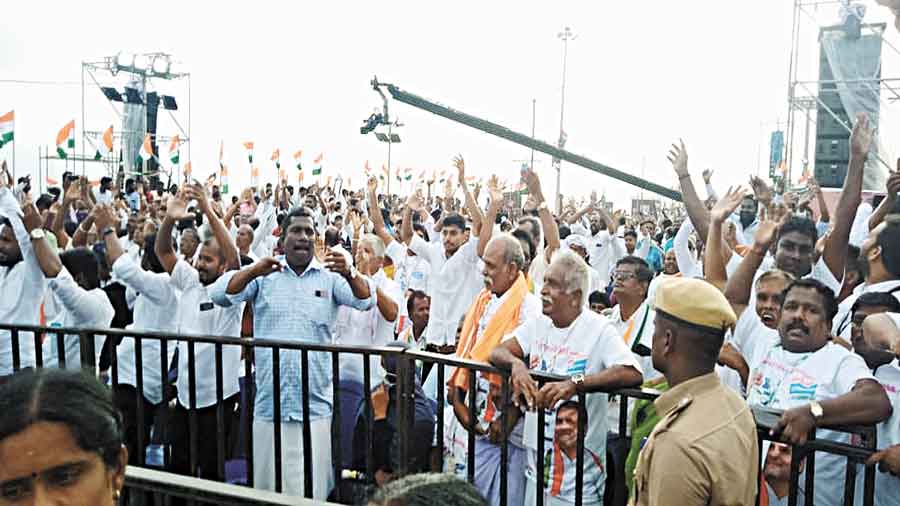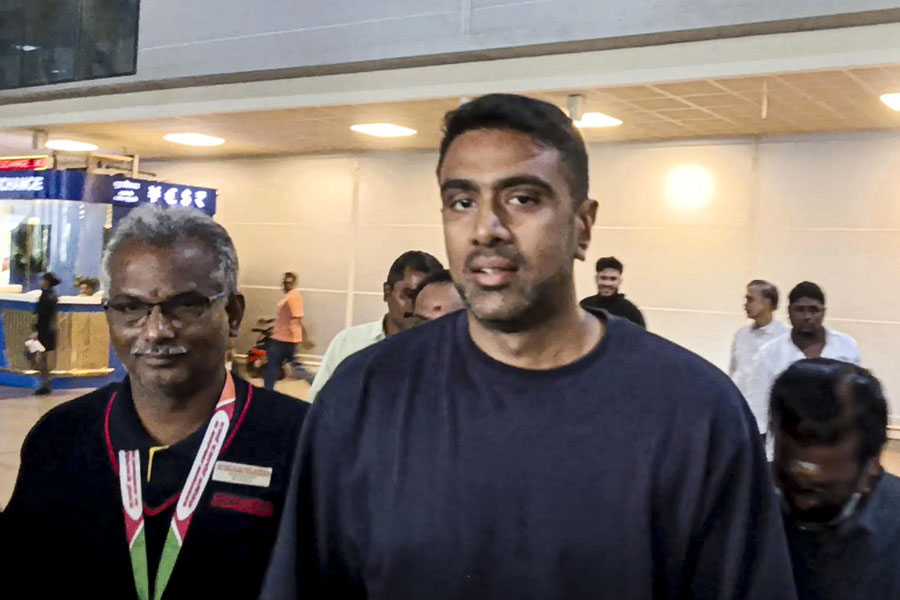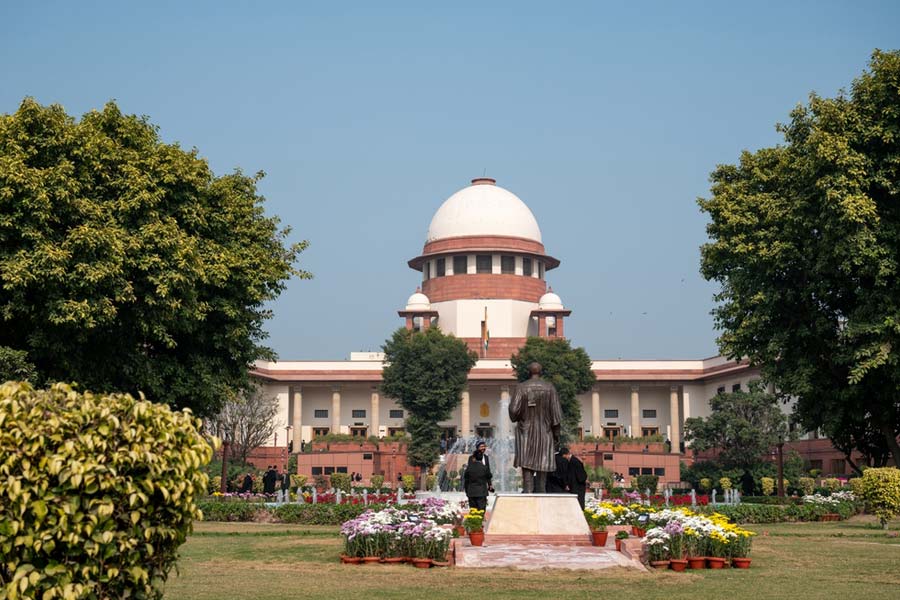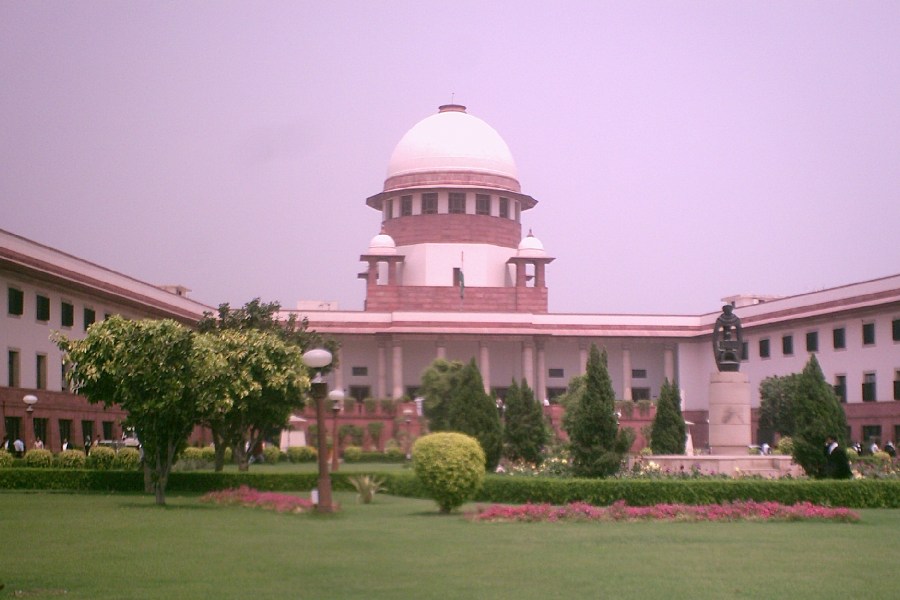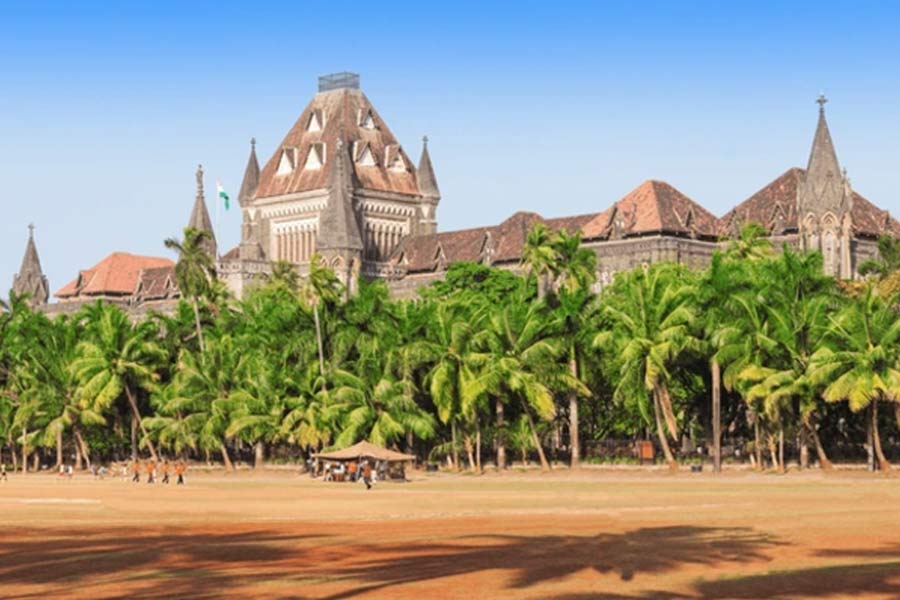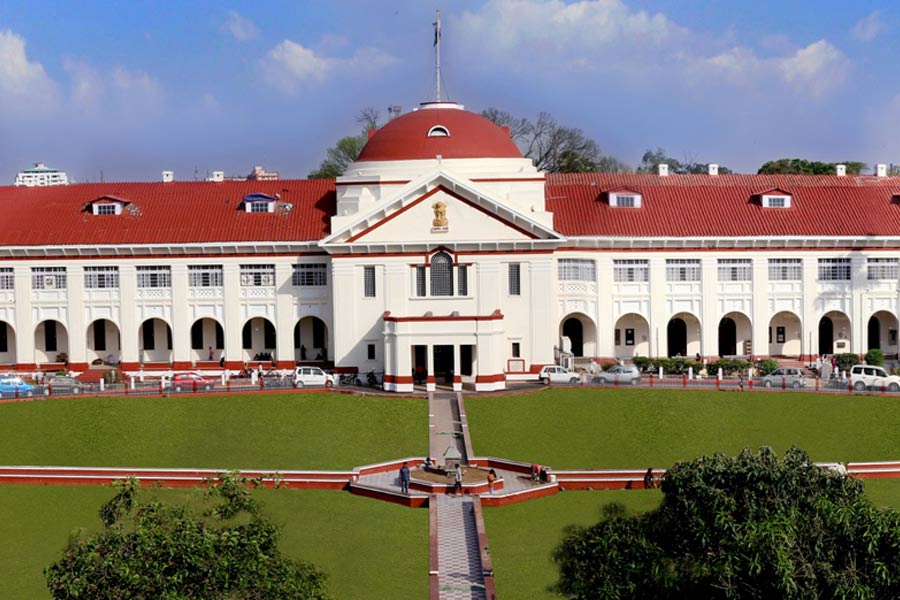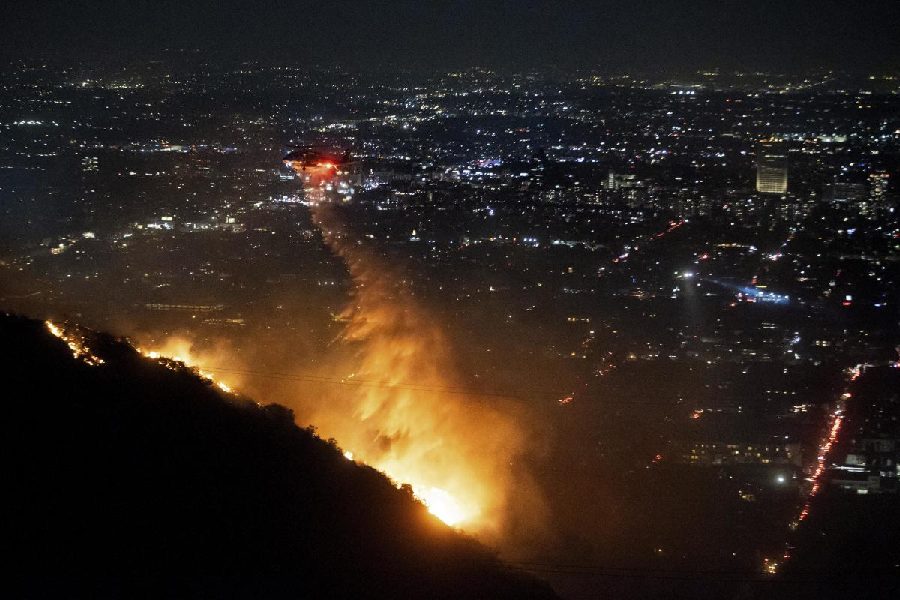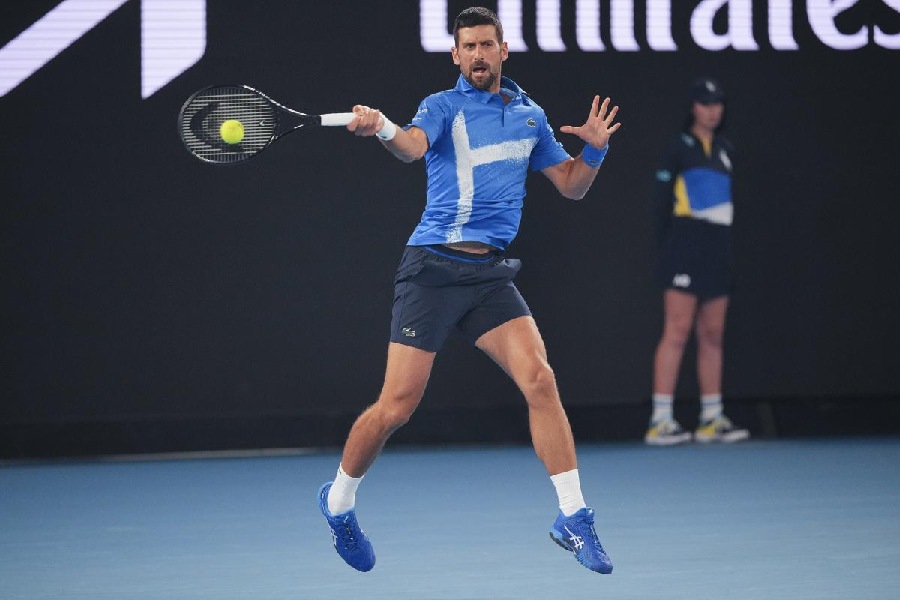The Congress on Wednesday responded to India’s desperate need to unify the society — which has never been felt more since the Partition in 1947 — by launching the Bharat Jodo Yatra aimed at creating awareness among the people about the need to extract our democracy from the vortex of toxic divisiveness.
The Congress leadership has invested heavily in this Kanyakumari to Kashmir “padyatra” (march by foot), hoping this would be the turning point in the party’s history, resurrecting the decaying organisation from an existential crisis, apart from convincing citizens that nationalism does not require violation of constitutional principles of equality and justice.
The message of the yatra is clear: Survival needs solidarity and resistance.While Rahul Gandhi and other Congress leaders have been calling upon the people to rise against the RSS-BJP’s onslaught on the constitutional scheme, the anthem of the yatra also emphasises on the rainbow coalition of cultures and religions in India, arguing that breaking the unity would be impossible if everybody walks together, holding each other’s hands.
The yatra’s objective is to remind people that nationalism is not merely about soldiers, Pakistan and majoritarian dominance but it means protection of citizens’ rights and justice — both economic and social. Enthusiasm for the yatra, launched with the “Nafrat-Chhodo- Bharat-Jodo” slogan, is palpable. While leaders from all over the country have assembled here, posters and banners could be found all along the Thiruvanathpuram-Kanyakumari route.
Youth Congress and NSUI members were taking out motorcycle rallies and Seva Dal workers were holding street corner meetings since morning to mobilise support for the rally addressed by Rahul before the start of the yatra. As the Onam rush choked flights towards Kerala, senior leaders took a circuitous route through Mumbai, Kochi, Chennai and Bangalore to reach Kanyakumari.
Rajasthan chief minister Ashok Gehlot said the entire country understood the “purpose and need” of a yatra to unite the country.
“People are deeply troubled by communal hatred and violence. Polarisation has acquired dreadful dimensions and it could lead to civil war if left unchallenged. We repeatedly appealed to the Prime Minister to send out a firm message that divisive politics will not be tolerated. But he refused to intervene. It is shocking that the Prime Minister is not ready to talk about equality, social harmony and justice.”
Rahul, who on Wednesday morning went to Sriperumbadur, where Rajiv Gandhi was assassinated, for an all-religion prayer, tweeted: “I lost my father to the politics of hate and division. I will not lose my beloved country to it too. Love will conquer hate. Hope will defeat fear. Together we will overcome.”
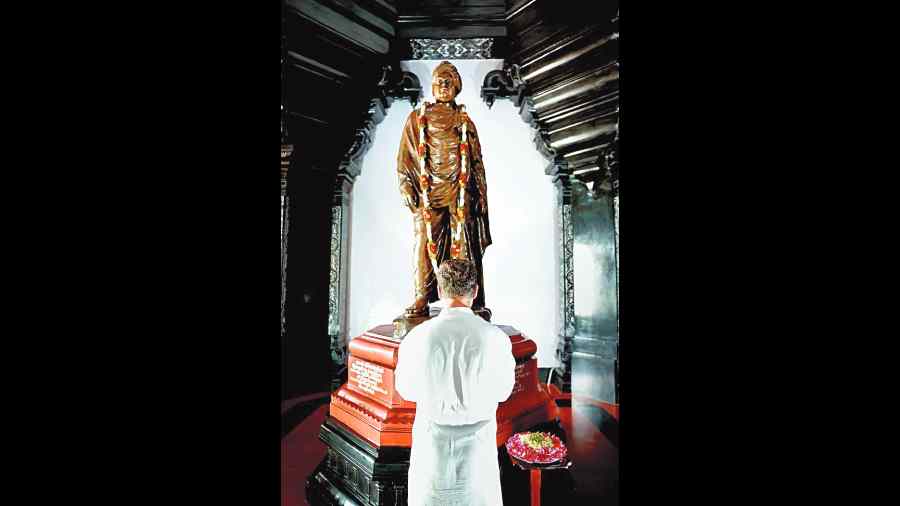
Rahul Gandhi pays homage to Swami Vivekananda during his visit to the Vivekananda Memorial in Kanyakumari on Wednesday. PTI
While Chhattisgarh chief minister Bhupesh Baghel said the RSS-BJP spread hate in every sphere of life, Mallikarjun Kharge insisted Rahul was fighting to save India’s soul.Communications chief Jairam Ranesh said: “Bharat Jodo Yatra is a transformational movement in Indian politics. India has been torn apart because of economic inequality, social and religious polarisation and dangerous political centralisation. Bharat is being broken. We are compelled to resist that regressive exercise. It is a decisive movement for Indian politics but it has also generated tremendous enthusiasm among Congress workers. We are a political party and we expect to come out stronger.”
Though a section in the Congress believes the party should have concentrated on strengthening the organisation and campaigning in election-bound states such as Gujarat, Himachal and Karnataka instead of wasting time on this, the majority view is that the yatra’s objectives were much larger than the revival of the Congress. Top leaders insist this is a “now-or-never” situation as there is a concerted attack on constitutional democracy and the country is drifting into elected authoritarianism.
Congress leaders who have assembled here in Kanyakumari said the Narendra Modi government has plotted to weaken vital institutions like judiciary, Election Commission and the media and crush all forms of dissent by unleashing central agencies like the CBI and Enforcement Directorate upon the Opposition leaders. They referred to the crippling paralysis of institutions like the CAG, National Human Rights Commission, Lokpal and the Information Commissions.
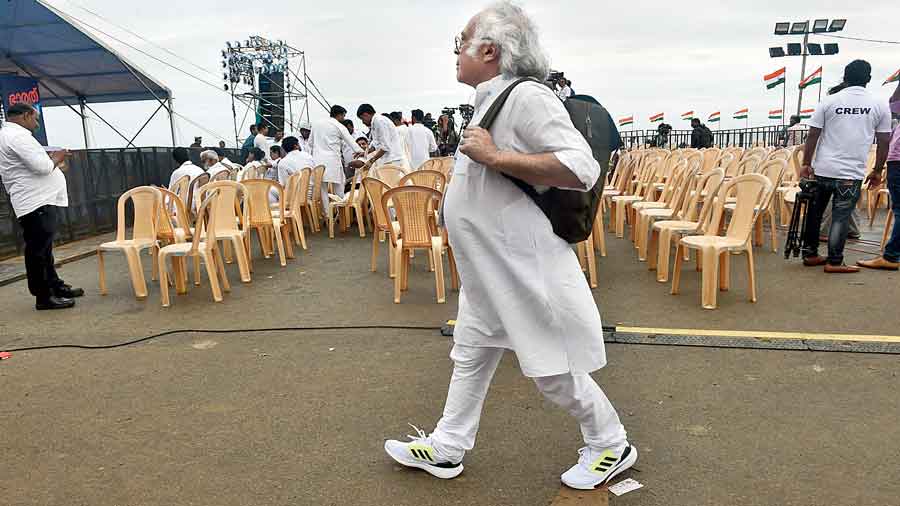
Congress communications chief Jairam Ramesh during the launch of the yatra. PTI
The Congress has been dwelling on these issues through speeches and media conferences but there has been no campaign in the last seven decades to secularise and unite the society. On the other hand, the project to exploit religious majoritarianism was brazenly executed. The BJP’s various rathyatras deepened social fissures and took communal tensions to abnormal levels. So-called fringe outfits gave open calls for genocide, rape of women and a narrative was created that bulldozer justice was directed towards Muslims.
Controversies about food habits, clothes, marriages and relationships continued to deepen the feelings of insecurity among the minorities. Reckless sale of public sector units to a few industrialists, denial of permission to debate vital concerns in Parliament, selective targeting of critics and opponents, engineering defections to topple Opposition governments, surveillance of important functionaries and the refusal to apply the principle of accountability to the BJP prompted Rahul and other leaders to fear death of democracy in India.
Rahul declared that there was no option other than direct conversation with the people and this yatra was conceived. General secretary (organisation) K.C. Venugopal described the yatra as “consultative process” with the citizens. The participants of the yatra are expected to interact with thousands of people every day over the next five months. NGOs, civil society activists, professionals, traders, workers unions, youth and students will be given the opportunity to meet Rahul during the yatra.

